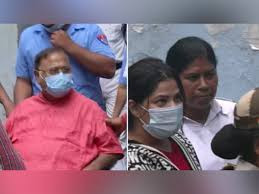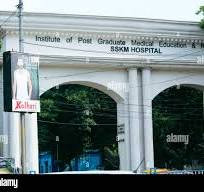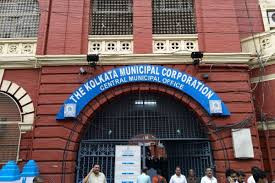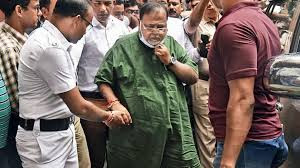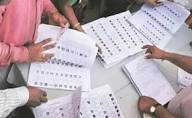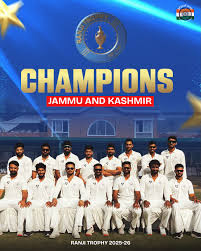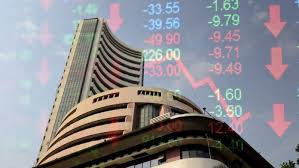Firhad Hakim Under Fire Again: Mamata Banerjee’s Key Aide Faces Political Heat Over Controversial Remarks

IIE DIGITAL DESK: Kolkata: Firhad Hakim, a senior Trinamool Congress (TMC) leader and one of West Bengal Chief Minister Mamata Banerjee’s most trusted aides, has once again landed in the eye of a political storm. Known as a seasoned politician and minority face of the party, Hakim is no stranger to controversy. However, his recent remarks targeting BJP’s Haroa bypoll candidate Rekha Patra have provoked sharp criticism across the political spectrum, reigniting debates over his role and conduct within the ruling party.
During a campaign speech for the upcoming Haroa Assembly by-election, Hakim referred to Rekha Patra, a Gangasagar victim-turned-politician, using the Bengali slang “heroo maal”—a phrase that loosely translates to "expired or worthless item" and is widely considered derogatory. His comment, made in the presence of party workers and supporters, was swiftly condemned by opposition leaders and women’s rights activists. The National Commission for Women (NCW) took suo motu cognizance of the incident and has sought a detailed report from the West Bengal Chief Secretary and Director General of Police.
The Bharatiya Janata Party (BJP) has strongly protested Hakim’s remarks, accusing him of misogyny and caste-based insult. Rekha Patra, a Scheduled Caste leader and prominent face of the BJP’s campaign in the area, became a rallying symbol for the opposition, with several party leaders demanding his immediate arrest and disqualification from public office. The BJP has filed formal complaints with both the Election Commission and the local police.
This is not the first time Firhad Hakim has drawn ire for his public statements. In July 2024, during a religious event, he had controversially stated that people born outside the Muslim faith were “unfortunate” and suggested that embracing Islam would bring them closer to humanity. The remark triggered a political uproar, with the BJP accusing him of promoting religious conversion and communal division. Though the TMC distanced itself from the statement, Mamata Banerjee refrained from taking any visible disciplinary action.
Hakim made headlines for reportedly claiming that Muslims would soon outnumber Hindus in West Bengal—remarks that were widely circulated by right-wing groups and used to stoke fears of demographic imbalance. He has also previously referred to the Garden Reach area, which he represents, as “mini-Pakistan,” further fuelling charges of sectarianism and appeasement politics.
Hakim remains a central figure in Mamata Banerjee’s political apparatus. His longstanding loyalty, administrative experience, and influence in the Muslim community have made him indispensable in the party’s electoral strategy. A former Mayor of Kolkata and current state minister, Hakim is often deployed in sensitive constituencies, particularly where minority votes are crucial.
Political analysts suggest that Hakim’s repeated provocations are part of a calculated strategy to consolidate the TMC’s traditional support base. However, with rising public sensitivity around gender, religion, and caste issues, such tactics increasingly carry the risk of legal consequences and political backlash. The latest controversy, coming on the eve of crucial bypolls, threatens to erode the TMC’s moral authority and provides fresh ammunition to the opposition.
While Mamata Banerjee has yet to issue a public statement on the matter, pressure is mounting on the party leadership to take a firmer stand. As the BJP steps up its demand for accountability, and women’s rights bodies amplify their condemnation, the TMC faces the dual challenge of defending a trusted aide while also projecting a more inclusive and respectful political culture.
In a state known for its charged political atmosphere, Firhad Hakim’s words have once again stirred the waters—raising the question: how long can loyalty shield a leader from the weight of public accountability?
You might also like!



